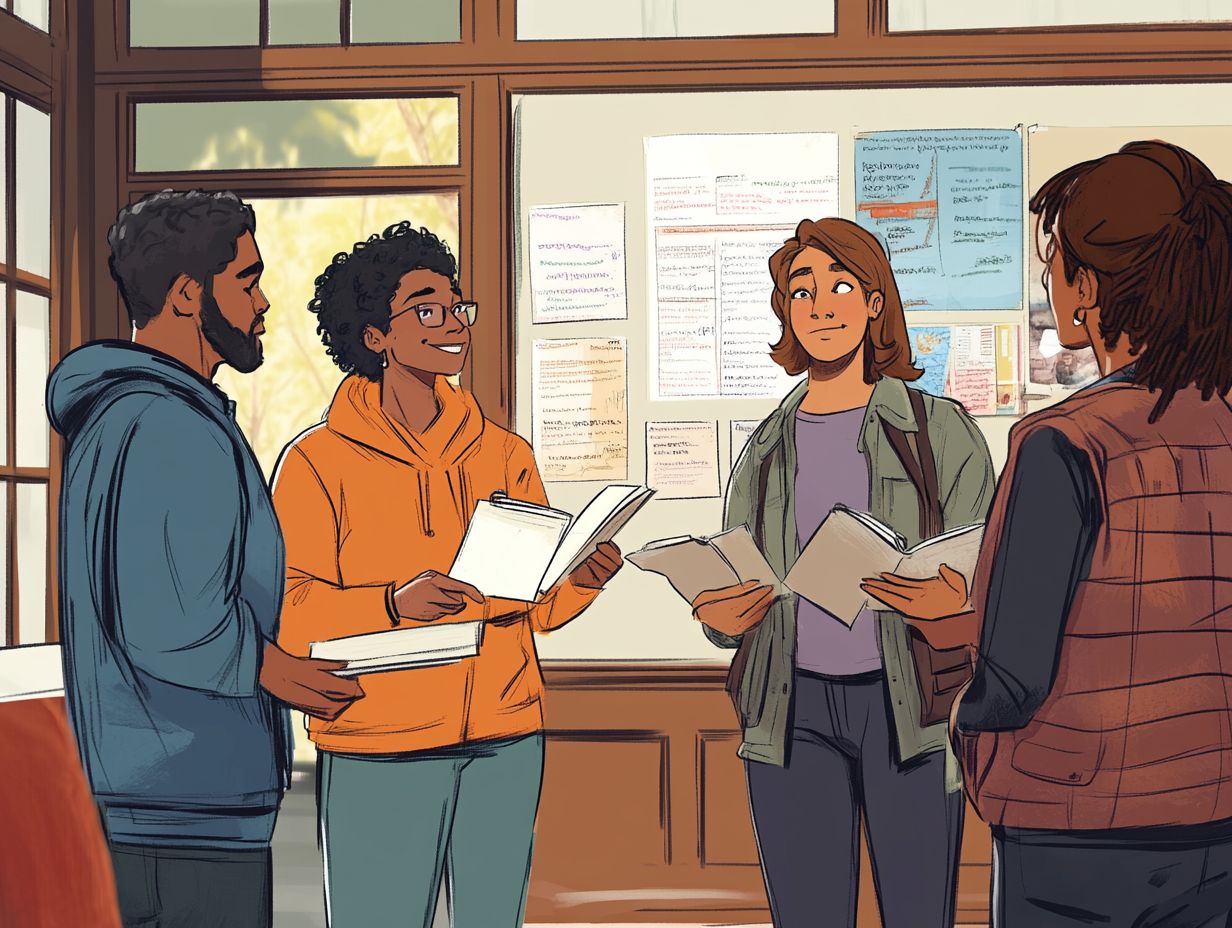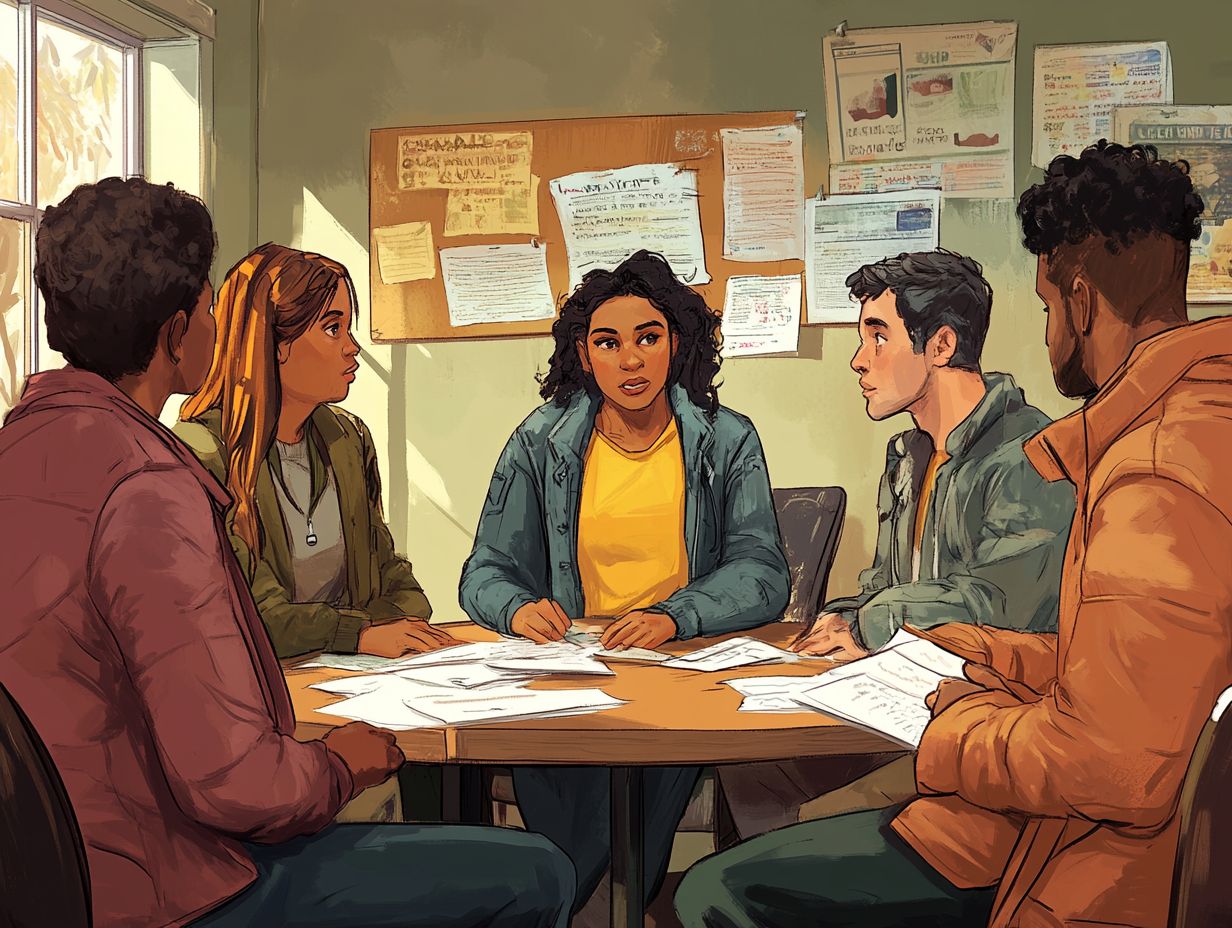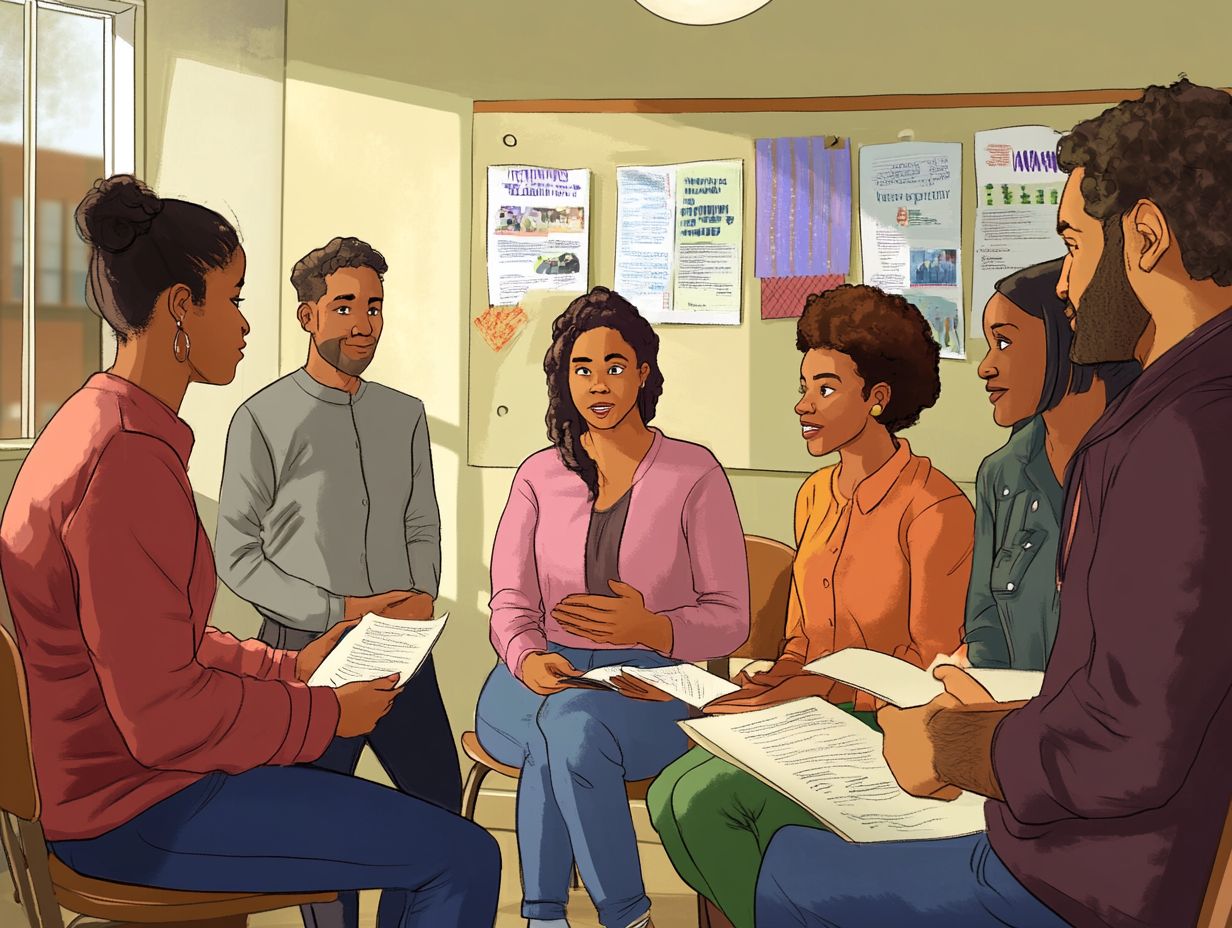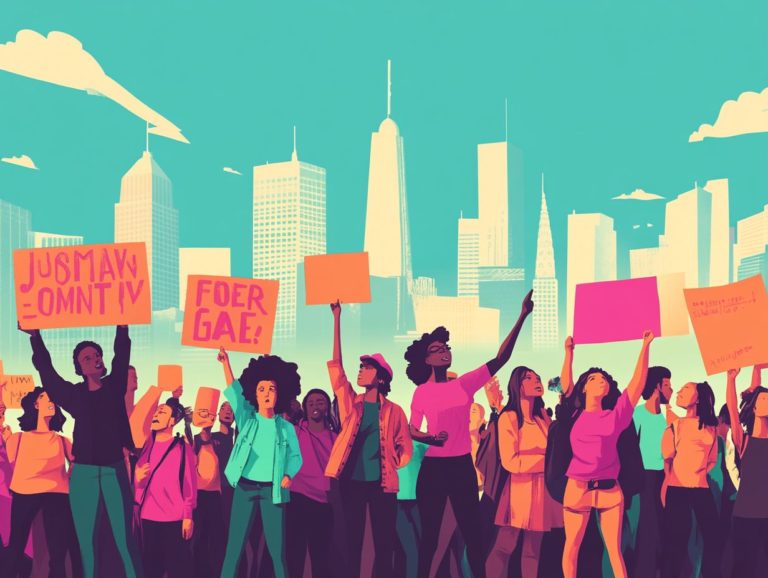How to Stay Informed About Your Rights
Understanding your rights is crucial for navigating today s intricate landscape. Whether it pertains to your civil liberties or consumer protections, being well-informed empowers you to advocate for yourself and others!
Get ready to dive into your rights and learn how to protect them! This article explores what your rights are, why staying informed is essential, and practical methods for educating yourself. You ll also discover how to identify when your rights are being infringed upon and the steps you can take to stand up for yourself.
Together, let s uncover the essential knowledge you need to effectively safeguard your rights.
Contents
Key Takeaways:

Be aware of your rights and why they are important to understand and protect.
Stay informed by conducting research, educating yourself, and utilizing legal resources and organizations.
If you suspect your rights are being violated, recognize the signs and take action by communicating effectively and seeking legal help.
Understanding Your Rights
Understanding your rights is crucial for navigating the intricate landscape of civil rights laws shaped by the U.S. Constitution. This realm encompasses a broad spectrum of protections, including voting rights and digital discrimination, as well as those specific to marginalized groups, such as the LGBTQ community and individuals facing challenges related to immigration status.
When you know your rights, you empower yourself and others, getting involved in your community and championing equality for all.
What are Your Rights?
Your rights encompass a wide array of civil rights and liberties, providing essential protections against discrimination in hiring processes, reproductive laws, and access to healthcare services.
These civil rights are vital to ensuring that you are treated fairly, regardless of your race, gender, sexual orientation, or any other defining characteristic. Legal frameworks like the Civil Rights Act are designed to uphold these protections by prohibiting discriminatory practices in employment and education.
The Fair Housing Act further ensures that you can pursue housing opportunities without facing discrimination, reinforcing the principle of equal opportunity.
If you ever encounter discrimination, numerous organizations advocate for social justice and stand ready to support you, reflecting a collective commitment to uphold these rights.
For instance, laws that protect LGBTQ+ individuals illustrate the ongoing evolution of civil rights, addressing contemporary challenges to ensure that everyone enjoys freedom, dignity, and equality.
Why is it Important to Stay Informed?

It’s crucial to stay informed about your rights to counter misinformation, enhance your media literacy, and contribute to your emotional well-being in today s ever-evolving landscape.
In a world inundated with misleading information across countless platforms, understanding civil rights is vital not just for your own empowerment but also to advocate for justice within your community.
Remaining uninformed can lead you to fall prey to deceptive narratives that distort your perceptions and inhibit your ability to engage meaningfully in social discourse. Cultivating media literacy enables you to critically analyze sources and distinguish between fact and fiction.
This skill ultimately leads to more informed decisions that can positively influence your mental health! By engaging with accurate information, you equip yourself with the necessary tools to navigate the intricacies of societal issues, emphasizing the significance of an informed citizenry.
Ways to Stay Informed
Staying informed about your rights requires a multifaceted approach. This means gathering information from reliable news sources, subscribing to insightful email newsletters, and actively engaging in self-education.
By doing so, you not only enhance your own understanding but also strengthen the community support around you.
Research and Education
Engaging in research and education about your rights helps combat misinformation. It paves the way for an ethical life based on informed decisions.
By using credible resources, you can arm yourself with knowledge to navigate societal issues. Seek out workshops, seminars, and community programs that promote learning.
Continuous learning is crucial for personal growth, enhancing critical thinking skills and strengthening community connections.
As you become more informed, you empower yourself to contribute positively to discussions and initiatives, creating a ripple effect that benefits society as a whole.
Legal Resources and Organizations

Accessing legal resources is essential for understanding your rights. Organizations like the ACLU and local legal aid offices provide valuable support.
They offer workshops and legal clinics to help you navigate complex situations. These organizations also engage in advocacy that highlights systemic injustices.
As you tap into these resources, you enhance your understanding of your rights and contribute to broader community support initiatives aimed at promoting equity and justice.
Knowing When Your Rights Have Been Violated
Recognizing when your rights are violated is crucial for seeking justice. This is especially important in situations involving law enforcement.
Being aware of these violations empowers you to take action and advocate effectively.
Recognizing Signs of Infringement
Noticing signs of rights infringements can impact your well-being and community health. Discrimination, forced displacement, and unjust imprisonment harm everyone.
These violations create fear and mistrust. Awareness initiatives help you identify and report issues, fostering accountability and resilience.
By promoting education and dialogue, communities can create safe spaces for discussion, reinforcing their collective strength in the pursuit of justice and equality.
What to Do if Your Rights are Violated

If your rights are violated, knowing the steps to take is vital. Document incidents and gather evidence to support your case.
Engage with civil rights organizations for resources and support. Legal counsel specializing in discrimination can guide you through legal complexities.
Connecting with community support groups nurtures a sense of belonging and enables you to collectively stand up for your rights, amplifying your voice.
Advocating for Your Rights
Advocating for your rights means mastering effective communication and understanding legal resources. Emphasize your responsibility and the importance of community engagement.
Effective Communication and Action
Effective communication strategies are essential for supporting a cause. They allow you to leverage community support and platforms like social media to amplify your voice and inspire action.
These techniques do more than just spread important information; they create meaningful connections among individuals who share common goals.
Take, for instance, successful campaigns like the Ice Bucket Challenge and the #MeToo movement. They showcased the immense power of blending digital outreach with grassroots organizing.
By utilizing tools like online petitions and engaging storytelling, you can significantly elevate the reach and impact of your advocacy efforts.
Workshops and local events give you and your community the chance to transform digital momentum into tangible actions. This ensures that your cause resonates on both personal and communal levels.
Seeking Legal Help
Seeking legal help is a crucial step in advocating for your rights. It requires you to be aware of the legal resources and advocacy groups dedicated to defending against misinformation and discrimination.
Navigating the complexities of the legal system might feel overwhelming, but understanding where to find reliable support is essential. Start by exploring online platforms that gather information on reputable legal aid organizations and nonprofit advocacy groups.
These resources will guide you through various legal issues, making it simpler to access the assistance you need. Engaging with trusted community members or reaching out to local bar associations can provide additional insights.
Being well-informed gives you the power to distinguish credible information from misleading claims. This enables you to make sound decisions throughout your legal journey.
Frequently Asked Questions
What are some ways to stay informed about my rights?
You can stay informed by checking government sites regularly and keeping up to date with current news and events related to your rights. Consulting with legal professionals or attending workshops and seminars on the topic is also helpful.
How can I educate myself about my rights?
Read the laws and regulations that apply to your specific situation. Seek educational resources from reputable organizations and advocacy groups.
Why is it important to stay informed about my rights?
Staying informed helps you protect yourself and make informed decisions. It also empowers you to advocate for yourself and others in situations where your rights may be violated.
Is it necessary to seek legal advice to stay informed about my rights?
While seeking legal advice can be helpful, it is not necessary. Many free resources are available, such as government websites and community organizations, that provide information about your rights.
What should I do if I feel my rights have been violated?
If you believe your rights have been violated, gather evidence and consult with a legal professional. You may also consider filing a complaint with the appropriate government agency or seeking assistance from a reputable advocacy group.
How often should I check for updates on my rights?
Make it a habit to check regularly for updates on your rights, especially if there have been recent changes in laws or policies. It’s recommended to check at least once a year, or more frequently if you’re facing a specific issue related to your rights.






